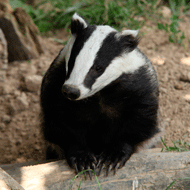NI vets to investigate bTB hotspots

The work will centre on a small number of grids selected at random within each area.
Vets are to begin an investigation into two areas of Northern Ireland that are thought to be hotspots for bovine tuberculosis (bTB).
Chief veterinary officer for Northern Ireland, Mr Robert Huey, made the announcement as part of a series of measures designed to eradicate the disease from the country’s cattle population.
In a statement, the Department of Agriculture, Environment and Rural Affairs (DEARA) said that it is planning to survey badgers for bTB infection in Aghadowey, Co Londonderry and Omagh.
‘These have been selected as they are areas having a high density of herds with bTB reactors and are also thought to have a high density of badgers,’ the statement reads. ‘The information gained will be used to help inform potential future wildlife intervention policies.’
The work will centre on a small number of grids selected at random within each area. As part of the investigation, DEARA staff will map badger sets, carry out blood tests and remove any badgers that test positive for bTB for further examination.
Mr Huey said that although DEARA has a comprehensive bTB Eradication Programme, disease incidence levels have recently shown a ‘sharp increase’.
“DAERA staff have continued to implement the bTB Programme to help tackle the disease. As a result of our robust bTB testing regime, working in partnership with farmers and private veterinary practitioners, around 90 per cent of our herds are free from bTB and able to engage in international trade,” he explained.
“However, in light of increasing bTB incidence over the past year, it is important that we continue to identify how we can improve the bTB Programme so that we can identify and remove infected animals at the earliest opportunity and take other actions needed to protect herds.”
Other measures, which will be rolled out in the coming weeks, include the introduction of a biosecurity self-assessment checklist and a reactor quality assurance pilot to establish baseline data on bTB skin test reactions.
DEARA will also be introducing a change that will see more herds that have more than one skin test reactor have their Officially Tuberculosis Free (OTF) status withdrawn.



 The veterinary mental health charity Vetlife is inviting the veterinary community to join it for a sponsored cold-water dip.
The veterinary mental health charity Vetlife is inviting the veterinary community to join it for a sponsored cold-water dip.